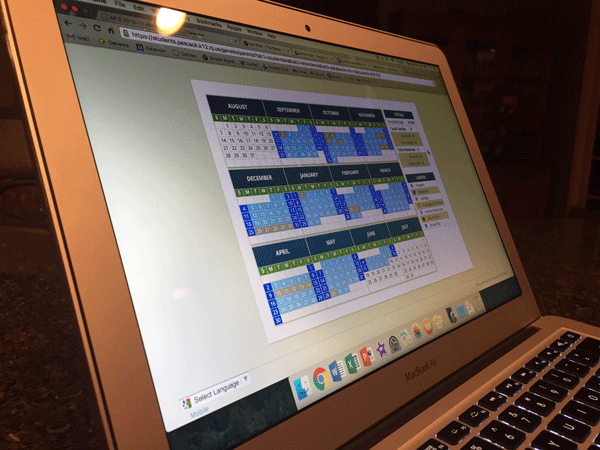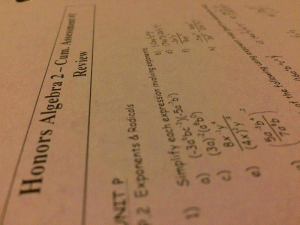PV moves to semester grading for new year
Change comes after one year of single semester system

Pascack Valley has made another switch to its grading schedule.
In the past, Pascack Valley has organized student grades into four distinct marking periods. Last year, the school made the change to one year-long grading period. This year, yet again, the number of marking periods is changing, this time to two.
This change comes after the one continuous marking period PV utilized for the first time last year. The new system adds a mid-year checkpoint for students to refresh and have a chance to recuperate and refocus.
“It’s like a snapshot of where you are up to that point,” said Barry Bachenheimer, the Pascack Valley Regional Director of Curriculum, Instruction, and Assessment.
At the end of the first semester in January, a student’s grade in Genesis will be frozen, but can be easily changed as students complete any missing assignments from the first semester.
Despite this change, Genesis will continue to be an ongoing grade book all year. At the end of the year, a student’s first semester and second semester grade will be averaged to calculate the student’s final grade. The mid-year grade is used to consider students for honor roll and easily report the half-year grades of seniors for college and graduation purposes.
The Board of Education arrived at this improved new system after examining and monitoring the single semester experiment last year. They made a presentation introducing this change in late May before announcing the idea to the parents at the end of June. Letters were later sent out to the students about the upcoming switch.
One of the major concerns with last year’s grading was the lessened emphasis on each individual assignment. Since there were many grades already in the gradebook towards the end of the year, there was minimal change to a student’s grade in a class if they scored high or low on an assignment. At the end of the school year, students struggling in a class were discouraged knowing there was not much they could do to change their grade. The opposite was also true, as students who felt comfortable with their grade in a class were less motivated to continue to do well.
This year’s new semester grades were inspired by the prospect of allowing students to show progress throughout the year while not falling into this problem.
“We still want the focus to be on what you learned and what you did more than getting an ‘A’ and then forgetting everything that was learned,” Bachenheimer said. He explains that students must understand that grades aren’t as important as the knowledge acquired through school work.
Bachenheimer has often heard students say, “What do i need to know for the test?”, or “What do I need to do to get an A?”, while they should be asking “What do I need to learn to benefit myself for the future?”
The change in grading should result in the schedule becoming more fluid and free flowing for both students and teachers. In past years, teachers have felt the need to cram everything, including homework, essays, projects, and presentations into one marking period which led to more stress on both the teachers and students.
Like last year, feedback is strongly encouraged from the BOE to see if this new system is beneficial to PV.
“For this year, we will be getting feedback about the switch to semester grades like we did last year,” said Bachenheimer. “We will be periodically meeting with students around January to see what people think.”













